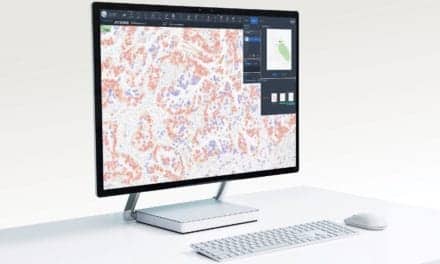Philadelphia-based Proscia announced that NASA’s Jet Propulsion Laboratory (JPL) and the National Cancer Institute Consortium for Molecular Characterization of Screen-Detected Lesions (MCL) have deployed Proscia’s Concentriq platform to advance biomedical research on improving cancer treatment. Through this collaborative program, JPL is digitizing a repository of valuable pathology data to make it readily accessible to researchers from across the seven sites of the consortium. Researchers will use the data to unlock new insights that combat the growing challenge of overdiagnosis, which results in unnecessary treatment of cancers that would have never caused medical problems for the patient.
While widening access to cancer screening often results in early detection and can increase the likelihood of successful outcomes, it also leads to a rise in the detection of asymptomatic cancers and overtreatment, incurring physical and emotional harm to the patient. The MCL, which consists of independent, multi-disciplinary teams, was established to address this issue by undertaking comprehensive molecular and cellular characterizations of tumor tissue, cell, and microenvironment components to more accurately identify aggressive cancers and find minimally invasive methods of treatment. As this research is data intensive, the MCL has partnered with JPL, which will translate its expertise in data analysis around planetary science to this initiative.
The collaborative program requires a scalable, centralized data repository to provide easy access to researchers across the seven sites of the MCL. To create this database, JPL and the MCL have adopted digital pathology, whereby high-resolution images of pathology specimens are captured, and they have deployed Proscia’s Concentriq to serve as the foundational software infrastructure.
Concentriq is a singular image and data management platform that unifies pathology operations across the connected enterprise and accelerates workflows. JPL is using Concentriq to host and manage the data repository, driving consistency for improved visibility and providing intuitive, secure access for the MCL’s team of researchers. Additionally, researchers are leveraging Concentriq to streamline sharing and collaboration so that they can fully capitalize on the collective strengths of the individual sites.
“Collaboration sits at the core of our research,” says Chris Amos, MD, PhD, the principal investigator of the coordinating center for the MCL and director for the Institute of Clinical and Translational Medicine at Baylor College of Medicine. “With Concentriq, we are able to centralize the activities of our distributed MCL team while ensuring that everyone can seamlessly work together to accelerate our research and unlock deeper insights.”
Proscia’s Concentriq is the digital and computational pathology platform used by leading research organizations and academic and commercial laboratories to transform image-based workflows at scale. The software can be rapidly deployed on existing IT infrastructure and works with leading scanners, laboratory information systems (LIS), and image analysis applications, offering seamless integrations with Philips, Leica, 3DHISTECH, Hamamatsu, and Visiopharm among other solutions.
“We are pleased to welcome JPL and the MCL to the growing roster of leading research organizations using Concentriq,” says David West, CEO of Proscia. “Digital pathology is driving biomedical advances by better connecting teams with their data, and we look forward to seeing its impact in addressing the important issue of overdiagnosis.”
For more information, visit Proscia.




